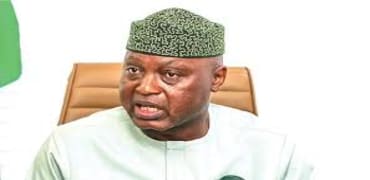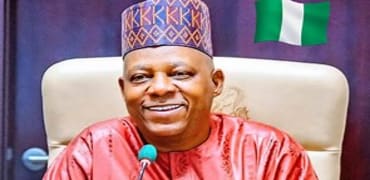Inside Nigeria's N47.9 Trillion Budget Plan: Bold Revenue Goals, Debt Overhaul, And Security Priorities
"Inside Nigeria’s N47.9 Trillion Budget Plan: Bold Revenue Goals, Debt Overhaul, and Security Priorities"
By Achimi Muktar
The Federal Government has unveiled an ambitious financial roadmap for 2025, targeting a staggering N34.8 trillion in revenue under the proposed N47.9 trillion Appropriation Bill. The plan, part of the newly approved 2025-2027 Medium-Term Fiscal Framework and Fiscal Strategy Paper (MTEF/FSP), was endorsed by the Federal Executive Council (FEC) and will be submitted to the National Assembly for review.
Revenue Breakdown: Where the Money Will Come From
The government’s revenue ambitions for 2025 hinge on a mix of oil and non-oil sources, including:
Oil Revenues: N19.6 trillion
Non-Oil Taxes: N5.7 trillion
Government-Owned Enterprises (GOEs): N2.87 trillion
Independent Revenues: N3.6 trillion
Other Sources: N4.8 trillion
These figures represent a calculated approach to boost fiscal capacity despite persistent challenges, including low oil and gas revenues and escalating fuel subsidy costs.
Spending Big: The N47.9 Trillion Budget
On the expenditure side, the government plans to allocate:
Non-Debt Recurrent Expenditure: N14.2 trillion
Capital Expenditure: N16.4 trillion
Debt Service: N15.38 trillion
Other Expenditures: N2 trillion
The budget reflects a delicate balance between critical infrastructure spending and managing the country’s escalating debt service obligations.
Debt Restructuring: A Strategic Shift
A centerpiece of the fiscal strategy is a comprehensive debt restructuring plan aimed at freeing up resources for development projects. The government will prioritize long-term non-commercial facilities with extended tenors (10–50 years) and moratoriums of 5–7 years. Borrowing, officials insist, will be a last resort and limited to projects that guarantee long-term economic growth.
Reforms to Boost Revenue and Cut Costs
The MTEF/FSP outlines several measures to address revenue mobilization challenges and improve fiscal management, including:
Eliminating petrol subsidies and reducing tax waivers.
Streamlining administrative costs and merging overlapping agency functions.
Strengthening budget oversight to curb mismanagement and corruption.
Improving tax administration to expand the tax net, especially in the informal sector.
Economic Growth Amid Challenges
Despite a shrinking dollar-denominated GDP, Nigeria is targeting a 3.68% growth rate in 2025, up from 2.74% in 2023. Nominal GDP is expected to rise to N352.36 trillion, driven by inflation-related consumption. Inflation, which averaged 32.8% in early 2024, is projected to fall to 16.94% next year.
The Central Bank of Nigeria (CBN) also anticipates stabilizing the naira at N1,400/$ in 2025, contingent on improved reforms in the oil sector.
Security and Infrastructure: A Shared Focus
Recognizing the link between security and economic growth, the government plans to invest heavily in military equipment, barracks, personnel welfare, and cybersecurity. Improved security conditions are expected to stimulate economic activities and social development, including enhancing productivity in agriculture and boosting access to education for vulnerable groups.
Balancing Optimism and Realism
While the 2025 budget plan is bold, its success depends on effective implementation of reforms, careful fiscal management, and addressing long-standing challenges like corruption and inefficiency. As the National Assembly deliberates the Appropriation Bill, Nigerians are hopeful that the ambitious targets will translate into tangible benefits for the economy and citizens alike.
Will this bold plan pave the way for fiscal stability and inclusive growth, or will it fall short under the weight of mounting challenges? Only time will tell.




















